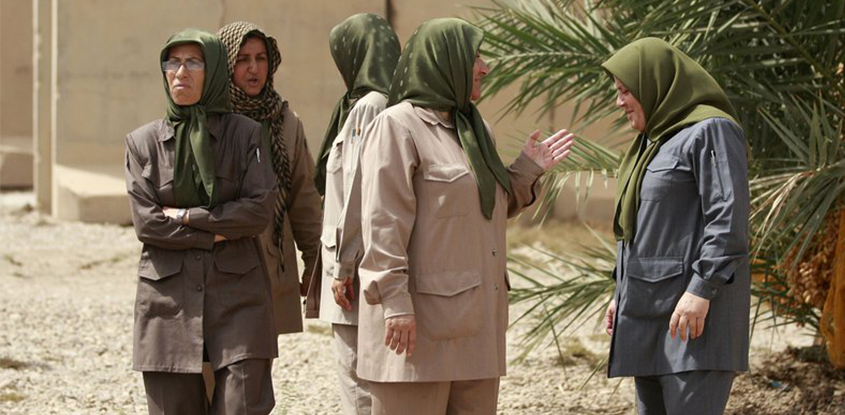
The Mujahedin-e Khalq Organization is one of the rare terrorist groups whose subjects and victims do not fell into a simple classification and cover a wide range of innocent civilians. The MEK tortures and violates the rights of its own members particularly women’s rights.
MEK has confined hundreds of women to its walled compound, once in northeast Iraq and now in southeast Europe, on the pretext of protecting their rights. A number of violations of women’s rights have been reported so far by a number of its defected members and international rights groups and institutions.
Human Rights Watch
One of the main reports on the MEK’s rights abuses was released in May 2005 by Human Rights Watch, which was quite clear on the MEK’s abuses. One of the chapters of the book details the “compulsory divorce” within the MEK camps, where the members were forced to renounce their emotional ties to their spouses through divorce.
The report quotes one of these members as saying how this process unfolded following the group’s humiliating defeat in its last offensive within the Iranian borders in late 1980s:
“The first thing I was required to do in Baghdad was watch a videotape of an ideological meeting for “executive and high-ranking members.” The meeting, called “Imam Zaman,” started with a simple question: “To whom do we owe all our achievements and everything that we have?” … Rajavi did not claim, as I thought he might, to be the Imam of our times, but merely said we owed everything to Imam Zaman… The object was to show that we could reach Tehran if we were more united with our leader, as he was with Imam Zaman and God. He was ready to sacrifice everything he had (which in fact meant all of us!) for God, asserting that the only thing on his mind was doing the will of God…. We were expected to draw the conclusion that no “buffer” existed between Rajavi and Imam Zaman; yet there was a buffer between ourselves and him [Rajavi] … which prevented us from seeing him clearly. This “buffer” was our weakness. If we could recognize that, we would see why and how we had failed in Operation Forogh [Eternal Light] and elsewhere. Masoud and Maryam [Rajavi] had no doubt that the buffer was in all our cases our existing spouse.”
The Mujahedin-e Khalq in Iraq; A Policy Conundrum
The second report is a 2009 report from the nonpartisan Rand Corporation. Titled as The Mujahedin-e Khalq in Iraq: A Policy Conundrum, the report revealed that MEK members were strictly segregated by gender and they were “severely socially and emotionally isolated, even within their communal living arrangements. Relatives and former spouses are placed in different compounds and are not allowed to see each other.”
In another part of the report, the gender segregation in MEK camps is highlighted, disputing the group’s claims of sexual equality and so forth: “Housing is segregated by gender, and in other buildings, lines are painted down the middle of hallways, separating them into men’s and women’s sides. Men and women below the leadership level are prohibited from contact with one another unless they have obtained official case-by-case permission. Shaking hands is prohibited across genders. Even the gas station at Camp Ashraf has separate hours for men and women.”
US Court of Appeal
The third report citing violations of women’s rights by MEK is one of documents obtained by the US Court of Appeals in 2010. In January 2010, MEK challenged its FTO status before the US Court of Appeals for the fourth time. During the briefing in this case, the US Secretary of State provided unclassified record with formerly classified materials to the court in order to sustain the MKO listing.
“Among the disclosures in the declassified material: the MEK trained females at Camp Ashraf in Iraq to perform suicide attacks in Karbala.”
From the above reports and dozens of other defected members’ accounts, it can be concluded that MEK, despite its outrageous claims, does not hesitate to use women as a tool and it also deprives them of their most basic rights, i.e. being free to have marital relations.
